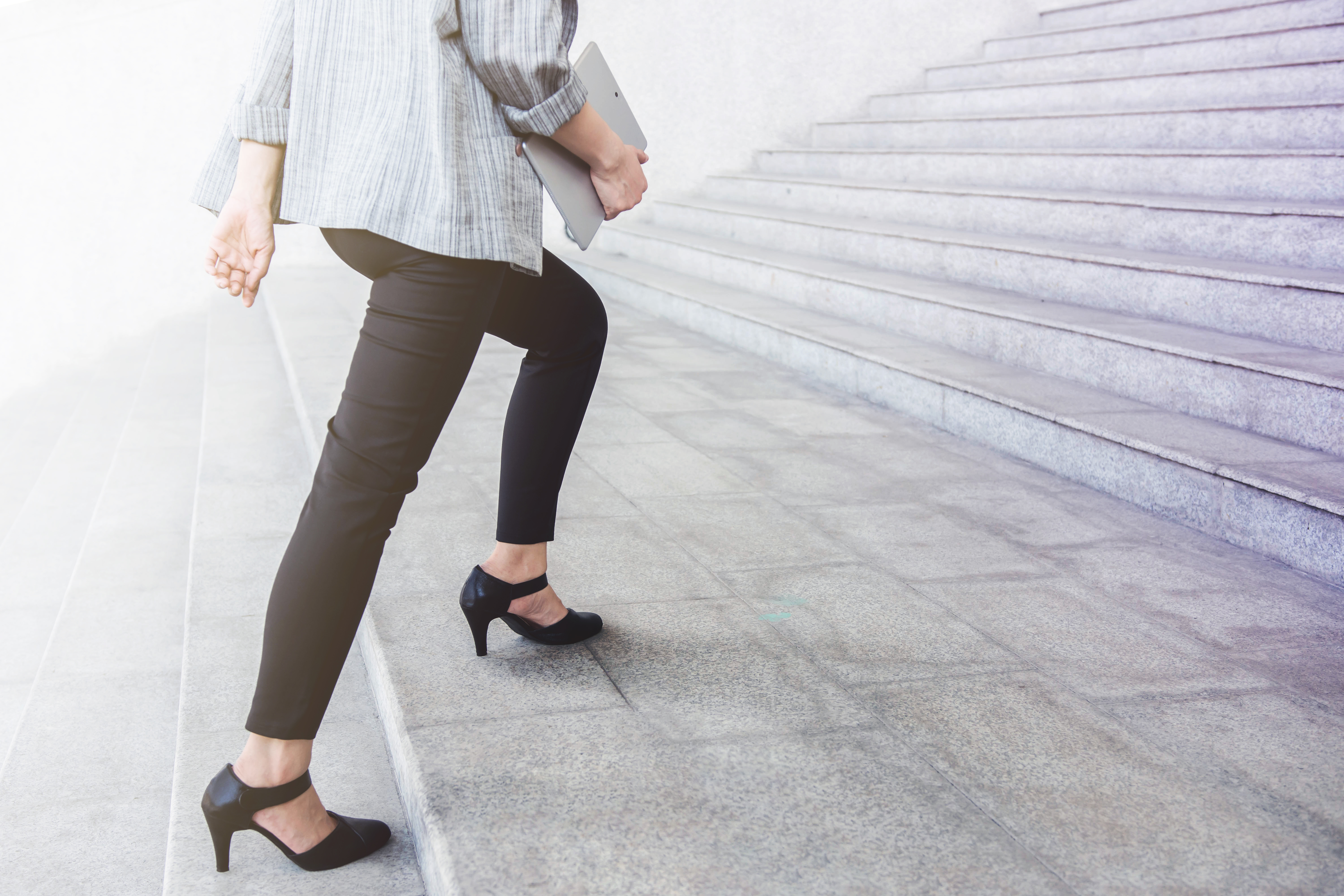I understand why the right type and amount of movement has become a missing piece of the metabolic puzzle for most women—and I have been equally guilty of losing that piece. But I have discovered it’s possible to sneak in the right amount of daily activity needed to enjoy an optimized metabolism without investing money or time in equipment, memberships, or classes. You can regain an optimized metabolism through movement, and it’s all about transforming your mind-set about the definition of movement.
That’s because activity thermogenesis is a two-way street. Yes, your body burns calories when you exercise. But you actually burn an overwhelming number of your total daily calories when you’re not exercising at all in non-exercise activity thermogenesis, or NEAT.
According to Dr. Hausenblas, whenever you’re working, walking, dancing, shopping, and just standing around doing absolutely nothing, you’re burning calories and improving your metabolic health—and that’s NEAT. In fact, the number of calories NEAT burns can range from about 15 percent to as much as 50 percent or more of your daily energy expenditure, even if you don’t presently exercise. When you focus on movement all day long—and not just that moment in the gym or during a workout—you’re removing as many instances of inactivity from your day as possible.
Let me ask you something, which person would you rather be? The one that has to drive to the gym to spend an hour sweating through their shirt, pressing a weight off their chest with a movement that we don’t do anywhere else—or the one who goes about their normal day, eating, relaxing, and moving only to do what needs to be done?
You see, optimizing your metabolism can mean tweaking how you already move, stand, and sit throughout your day. You can take advantage of NEAT to burn even more calories and increase your opportunity to optimize metabolism.
STEP UP
For 22 days, I want you to concentrate on standing more. And by that, I mean stand as often as possible—all day long. But in the event that you do find yourself having to sit for any extended period of time because of your job, social engagements, watching TV, or being up in the bleachers cheering on your kids, that’s fine. In these moments, I want you to stand up and move around for a minimum of 1 to 2 minutes every 30 minutes. During that time, I encourage you to do whatever you wish—walk around, hop in place, do standing squats or lunges, or just stand still—but I want you up and out of your seat.
The very first time I had the pleasure to interview Dr. Hausenblas for my docuseries The Real Skinny on Fat, we discussed how sitting is now regarded by many in the medical field as the new smoking because of its negative effects on our overall health and well-being.
Large-scale meta-analyses have shown that people who sit more during the day are at a greater risk of most chronic diseases. Spending too much time sitting has been linked to high blood pressure, high cholesterol, heart disease, an increased waist circumference, and obesity, in addition to other health concerns, including type 2 diabetes, cancer, osteoporosis, and depression.
But the running list of why sitting is so serious doesn’t stop there.
Recent research has revealed that excess sitting may increase the risk of conditions you may never have considered before, such as accelerated aging. Research out of the University of California, San Diego, School of Medicine found that elderly women who sit more than 10 hours a day have cells that are eight years biologically older than their actual chronological age. All that time spent on your bottom may even affect your brain, and UCLA researchers are currently looking into how constant sitting may thin out certain regions of the mind, particularly related to memory formation.
The good news is that all of these health risks can be reversed by standing up as often as you can. Dr. Hausenblas states that one of the many processes impacted by chronic sitting is metabolism, where sitting for longer than an hour causes your metabolism to significantly slow down. But the simple act of standing up—even for a couple of minutes—reinvigorates your metabolism just as quickly and burns calories at a rate of 0.15 calories per minute more than sitting. That subtle difference can really add up. According to Dr. Hausenblas, some people have shed upward of 10 pounds during one year from doing nothing but standing more.
How to Stand Up More Often: NEAT Exercises
In my clinical study, participants were prompted to stand and move more through texts and e-mails sent between 9 a.m. and 6 p.m. every day. Every 30 minutes, they would receive a message on their screens that read, “Time to GET UP! If you’re sitting, stand and walk for a minute. If you’re unable to walk around, then stand. If you’re unable to stand, try to move your body around as much as possible. You can do it!”
Some participants found that their own schedule of when to move and get up worked better for them, but ultimately, everyone was encouraged to find a way to increase their own movement each day. Participants were also sent a daily wellness survey every morning where they could self-report whether they felt they moved more
Now, even though I can’t be there for you in the same way, that doesn’t mean you can’t remind yourself to do the same. Using your smartphone alarm and setting it for 30 minutes—or downloading a time-management app that does the same—is the obvious solution.
But there may be times when having an alarm going off is easier said than done. In those instances, there are a few ways to make it more convenient, or even automatic, to go from seated to standing without needing a friendly nudge.
When at your desk
- Always stand when reading your emails—then sit when answering them.
- Stand whenever you find yourself looking to see what time it is.
When watching TV
- Get up at every commercial break.
- Place the remote away from yourself so that you have to get up every time you want to change the channel or adjust the volume.
When out socializing (at the movies, a game, or any type of event)
- Always choose the seat closest to the aisle so you can stand up and stretch without being bothersome.
- Be the one to offer to go to the snack bar.
When on your smartphone
- Make a hard-and-fast rule to never sit when texting or checking your three favorite apps.

Excerpt from High Fiber Keto: A 22-Day Plan to Fix Your Metabolism, Lose Weight, and Balance Your Hormones by Naomi Whittel (Hay House Inc., February 25, 2020)
Follow us here and subscribe here for all the latest news on how you can keep Thriving.
Stay up to date or catch-up on all our podcasts with Arianna Huffington here.


